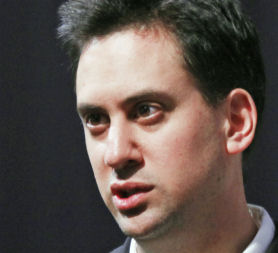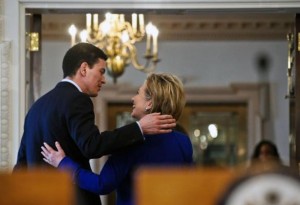22nd December, 2010
In case you’ve been wondering where I’ve been lately, the answer is: on Twitter. There are lots of things that are amazing about it. Lots of things that are horrible too, but there.
One of the things Twitter is no good at is subtle arguments or packages of ideas. You can’t always boil them down to 140 characters, and if you split your thoughts across 3 or 4 messages, someone will read you out of context and be confused.
So I still need my blog.
I wanted to say a couple of things about the Vince Cable story. Vince has been tricked by a couple of female Telegraph journalists posing as giggling star-struck constituents into making at least two big mistakes. Firstly, he boasted that if he was pushed too far he could use “the nuclear option” and resign from the government, which would (in his view) bring it down. Secondly, we subsequently learn, he has “declared war on Mr Murdoch” and set himself against Rupert’s proposed buyout of BSkyB. In response to the former boast, he was made to eat humble pie in Cabinet and out. When the second element of the story broke, David Cameron withdrew Cable’s ministerial authority on the BSkyB transaction.
There are many issues raised by this turn of events. My focus is on Labour’s response, which is troubling.
On Monday night, Cable had boasted about going nuclear and bringing down the government. Labour’s response? John Denham saying that this demonstrated the government was “paralysed by infighting”. Of all the criticisms you can level at this government, paralysis is not one of them. It is perhaps the busiest, most radical government in living memory.
Where are Bob Roberts and Tom Baldwin, Labour’s new spin doctors? What are they thinking? It could be that they were caught on the hop, it being Christmas and all, and needed an overnight to get their response straight. That would have been disappointing, but worth it if they had come out the next morning fighting. They didn’t. On Tuesday John Denham went to press online with the same lame accusation of paralysis. The pot, sadly, was calling the kettle black.
Surely there was an opportunity on Monday night for quick-fire political jibing. Surely there was something in Cable’s unguarded comments which sharp minds at LPHQ could have fired right back at him. I’m not arguing for glibness, just a sound-bite to tide us over before the measured response comes, as it surely will, from the political big guns.
But then, what about that measured response? What does Ed Miliband say, the next day, when the story moves to its second stage and Cable throws away his credibility with daft comments on Murdoch? He says that he, Ed, would have sacked him.
(Actually his response was smarter than that, to be fair – he said that “having apparently broken the ministerial code”, Cable should go. He asked whether David Cameron had made the decision to keep him in post in the interests of the country, or just in the interests of the government. The trouble is that all the press is going to hear is, “Miliband says Cable should have gone.” And sure enough, the news tickers said exactly, and only, that.)
The trouble with an Opposition response which can be reduced to a call for resignation is that it sounds, and is, lazy. Perhaps Ed Miliband thought it would help him to look stronger and more decisive than his counterpart, but we already know Ed can be ruthless. And as for decisive, the flipside of that is to be collaborative and inclusive, qualities for which Cameron is rightly admired. I fear Ed’s call for resignation only made Dave’s call for calm tolerance appear the more mature.
Ed Miliband was in a difficult position on this one because he wasn’t able to go in hard on the content. Cable was only saying what a lot of people on the left want to hear on BSkyB, and I can’t imagine Ed Miliband being a stout defender of the Murdoch faith. So Ed could only go on principle (the ministerial code) and on leadership qualities (“I’d have been tougher”). Not thrilling. Not enough.
What Ed so badly needs is a story for situations such as these. He needs a line of attack on the government which sees past the headline events of the day (there are so many in these busy and uncharted waters) and gets to the nub of content. Further, he needs to shape his critique so that it segues into a clear, passionate, inspired alternative policy offering. He has hamstrung himself on this score by calling for an extended (two-year!) period of navel-gazing inside Labour. If he leads from the front now with policy initiatives, it will be conspicuous that he is not waiting for his own policy review process. If he waits, he will leave the public with nothing but his own sense of the Labour alternative to think about – a party, which in his own words, has “lost its way” (22 Nov 2010).
Ed’s is not a difficult choice. Waiting is the worse of the two options. If Cable shows us anything, it shows us that the Coalition is fragile. If things “go nuclear”, Labour will need a leader. Now.


